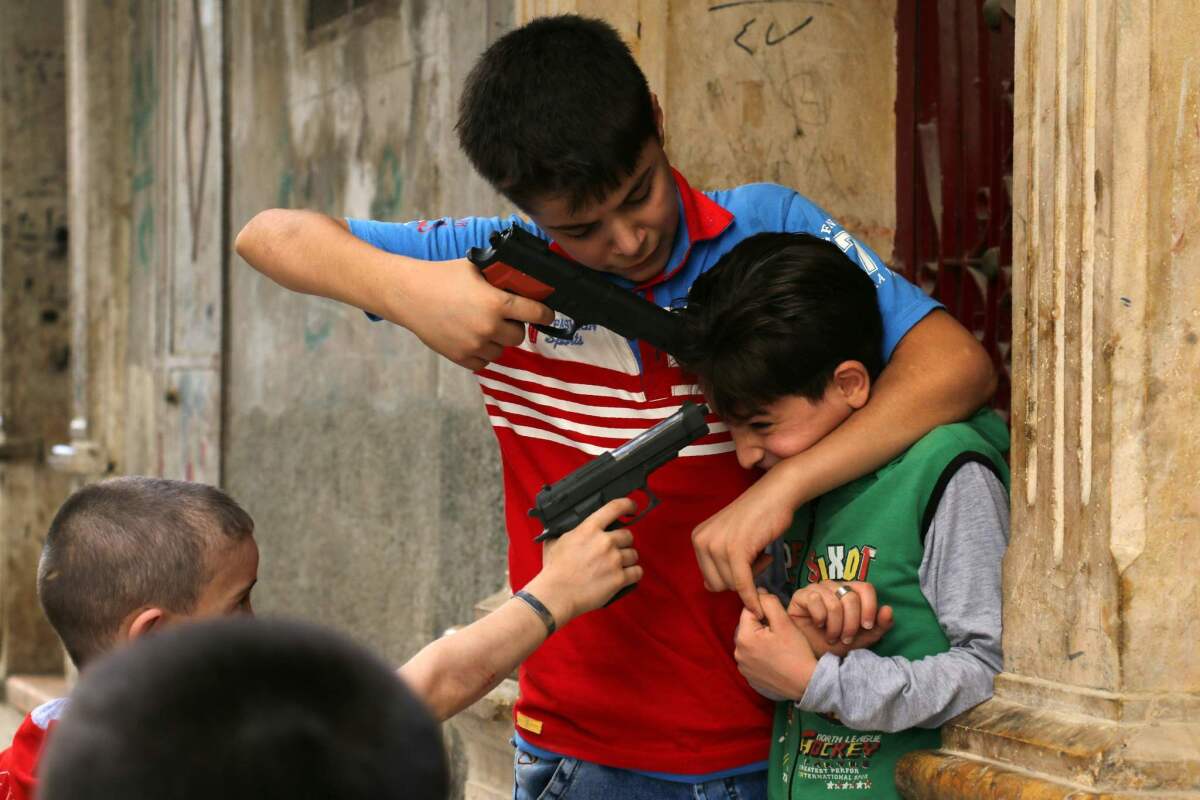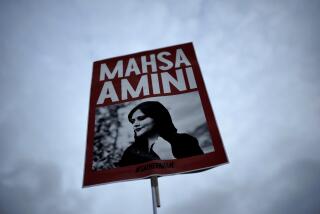Syrian opposition is using same methods of torture as Syrian government, report finds
Those who rose up against the Syrian government in 2011 celebrated when armed groups pushed its forces out of parts of the country’s north.
But the relief was short-lived. Since 2012, jihadists and rebels have carried out a “chilling wave of abductions, torture and summary killings” that often echoed the heavy-handed ways of government security forces, according to a report released this week by the monitoring group Amnesty International.
The report focused on five opposition factions operating in the northern provinces of Idlib and Aleppo, including the Al Qaeda-affiliated Al Nusra Front and the hard-line Ahrar al Sham. All five are accused of abductions; two are also accused of torture.
Three of the groups have received military and financial support from a joint operations center in southern Turkey organized in part by the CIA.
“When it comes to the torture, we can see these armed groups [using] the same methods as the government,” said the researcher in charge of compiling the report, who spoke on condition of anonymity for fear of reprisal. “The scale is smaller of course, but they’re using the same torture methods, and they use interrogation techniques where they force someone to confess.”
The researcher said human rights violations are likely undercounted, because people are hesitant to report them out of fear for their safety. “It’s such a delicate issue, people were refusing to speak about this… many people refused for us to mention their interviews in the report.”

“Many civilians live in constant fear of being abducted if they criticize the conduct of armed groups in power or fail to abide by the strict rules that some have imposed,” Philip Luther, director of the Middle East and North Africa program at Amnesty International, said in a statement. “In Aleppo and Idlib today, armed groups have free rein to commit war crimes and other violations of international humanitarian law with impunity.”
The groups targeted lawyers, activists, journalists and even children - including two that have yet to be recovered.
One child, a 14-year old boy, was taken when crossing into Syria to visit his grandparents. His family was told that Ahrar al Sham, which controls the Bab Hawa crossing between Turkey and Syria, was holding him and had put him in solitary confinement.
The other child was 16 when he was abducted in 2012 from a friend’s house in a town north of Aleppo. A relative told the rights group that fighters “had called the child’s mother and told her they had her son. They even beat the child as he was talking to her.”
Victims also included minorities, mostly those from Sheikh Maqsoud, a predominantly Kurdish neighborhood in Aleppo city controlled by a Syrian Kurdish militia known as the People’s Protection Units.
The report documents 24 cases of abduction and five cases of torture, including that of “Halim,” the pseudonym used for a humanitarian worker abducted by militants from Nour Al-Din Zinki in July 2014 while working in a hospital in Aleppo city.
Halim said he was interrogated six to seven times and was told to confess to charges of spying and providing the hospital’s GPS coordinates to the Syrian government.
“When I refused to sign the confession paper, the interrogator ordered the guard to torture me.... He placed my hands above my head and forced me to lift my legs in a perpendicular position,” Halim said.
“He then started beating me with cables on the soles of my feet. I couldn’t [bear] the pain so I signed the paper.”
An official with Nour Al-Din Zinki’s legal office, Khaled Shihab, said in an interview on social media that the group does not tolerate human rights violations.
“We have adopted humanitarian law and are known as moderates,” Shihab said. He insisted that Amnesty had not done its due diligence, at least in the case of Halim.
“This person could have gone to any doctor and had their wounds examined and then given the report to Amnesty to show he was tortured, but he has no report of this,” he asserted. He also said there was no such detention center in the location Halim mentioned.
“We are ready to be held accountable, but it’s not acceptable to do this without proof.”
Several groups and their associated courts apply a severe interpretation of Islamic law allowing corporal punishments that amount to torture. The report, however, details cases of torture against only two factions, Al Nusra Front and Nour Al-Din Zinki.
Some of the most damning accusations were leveled at Al Nusra Front and Ahrar al Sham. Both groups impose punishments that amounted to torture, Amnesty said. They apply the death penalty for some crimes, such as apostasy or adultery.
A member of Ahrar al Sham’s political office, who refused to be identified because he was not authorized to speak to reporters, said all accusations of misconduct in the report would be investigated.
“We don’t care if there is one violation or a thousand, we’re ready to sit down with Amnesty and go through all of the details and discuss this. We have asked for a more solid relationship with them,” he said.
“We’re not claiming we make no mistakes. This is a civil war. But there is a difference between something being part of a policy or an exception,” he said. “We believe this report came out too soon, and it will be employed politically by the government.”
Bulos is a special correspondent.
More to Read
Sign up for Essential California
The most important California stories and recommendations in your inbox every morning.
You may occasionally receive promotional content from the Los Angeles Times.











